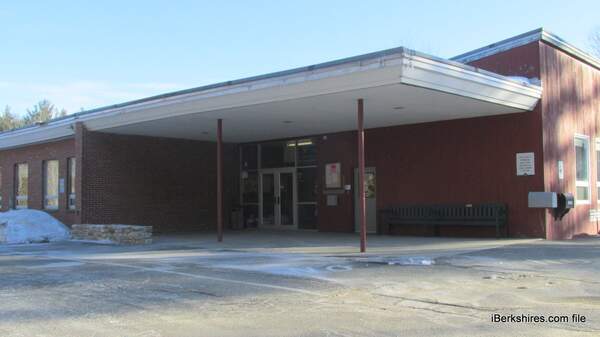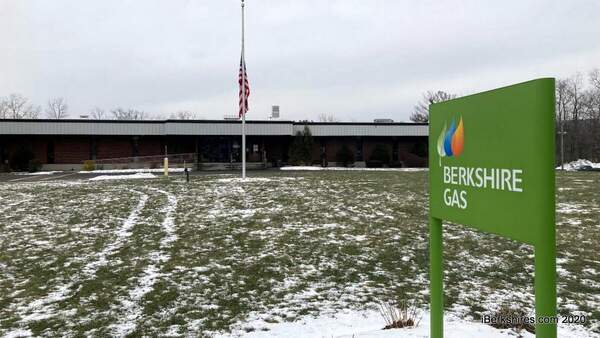Air Quality Analysis Required for State Permits Near Certain Populations
BOSTON — The Healey-Driscoll administration moved to address air quality issues in or near environmental justice areas by announcing amendments to state air pollution regulations.
The changes require certain facilities seeking air emissions permits in or near communities with environmental justice populations to conduct a cumulative impact analysis, which evaluates existing local environmental and health conditions in a community. The regulations also require enhanced public outreach to, and meaningful involvement of, environmental justice populations in the permitting process. The new regulations are now in force and apply to permit applications filed with the state Department of Environmental Protection (MassDEP) on or after July 1, 2024.
"Our administration is committed to addressing longstanding environmental injustice," said Gov. Maura Healey. "Massachusetts is proud to make history as the first state in the nation to launch a statewide program to require a detailed, site-specific evaluation of cumulative impacts to consider public health and other factors. We hope to set the standard for others to follow as we seek to right past wrongs and build healthier, more inclusive communities."
People are exposed to pollution through air, water, and land. Over time, these exposures can add up and interact with each other, and combined with existing health and socioeconomic conditions, can cause adverse health impacts. Communities that are home to numerous sources of pollution — such as highways or waste facilities — often have higher rates of asthma and other serious health conditions. This is especially true in communities with environmental justice areas, where residents have higher instances of health issues related to socioeconomic conditions. Current air pollution regulations do not require new facilities to assess potential pollution in light of existing environmental and health conditions or existing pollutant sources in the area. By requiring new and expanding facilities that will emit air pollution to conduct a cumulative impacts analysis prior to applying for an air permit, residents will be empowered with practical information about potential impacts to their health and community.
"The cumulative impact analysis gives our agency and the public a better basis to evaluate project proposals in real-world contexts," said MassDEP Commissioner Bonnie Heiple. "MassDEP has developed innovative tools and compiled comprehensive datasets that can be used by permit applicants and interested residents to assess local impacts."
Community Engagement
Early community engagement and advance notification are key requirements of the new rules.
The regulations apply to projects that would emit significant amounts of air pollutants in or near environmental justice communities — for example, certain power plants, large boilers, and manufacturing facilities. At least 60 days before applying for a new or modified air permit, the permit applicant must provide a notification and fact sheet about the proposed project to nearby environmental justice populations, local officials, and MassDEP. The applicant also must provide public involvement opportunities and document and respond to comments and concerns raised by the public.?
Comprehensive Analysis
The new rules require permit applicants to assess existing community conditions by evaluating 33 environmental, health, and socio-economic indicators. These indicators help characterize existing pollution sources, health vulnerabilities, and other stressors that could be worsened by increased air emissions from the proposed project. The updated rules require a more comprehensive analysis of the impacts of these projects to local communities, including consideration of:
Existing air pollution and health conditions
MassDEP has developed guidance and tools in support of the new regulations that can be used by permit applicants and environmental justice populations. These include guidance on how to conduct a cumulative impact analysis, including public outreach, assessment of existing community conditions, and analysis of cumulative impacts; a Mapping and Data Application for use in the assessment of existing community conditions; and a Massachusetts Air Toxics Risk Screening Tool (MATRiST) that can be used in the cumulative impact analysis to estimate cumulative air toxics risks from proposed projects. These resources are available online here.
MassDEP plans to review this program within two years of the effective date of the regulations, including by soliciting input and feedback from the public regarding potential updates.
The Healey-Driscoll administration has made environmental justice central to its climate and environmental agenda. Under Governor Healey, the Massachusetts Executive Office of Energy and Environmental Affairs created the Office of Environmental Justice and Equity, led by Undersecretary María Belén Power and secured $7 million for environmental justice staffing and initiatives across agencies, including MassDEP. The Office of Environmental Justice and Equity also recently announced the state's first Environmental Justice Strategy, which includes MassDEP's department-specific strategy to meaningfully engage with environmental justice communities.
"The new Massachusetts air permit regulations take a bold step to protect overburdened and underserved communities in a new way, requiring consideration of cumulative impacts from environment, public health and socioeconomic conditions as part of the permitting process," said EPA New England Regional Administrator David W. Cash. "The combination of considering cumulative impacts and enhanced community engagement to address community priorities early in the process is foundational to environmental justice. We hope that this will serve as a model for other states across the country and bring new air quality and public health improvements to Massachusetts residents."
More information on cumulative impact analysis requirements can be found on MassDEP's website.
Tags: MassDEP,















